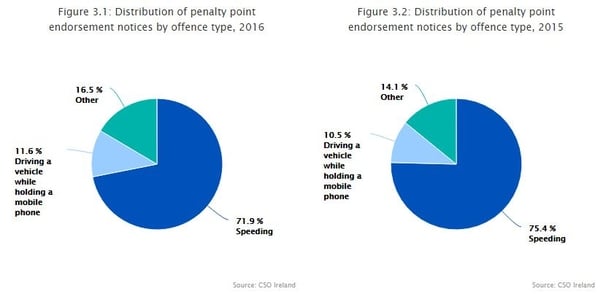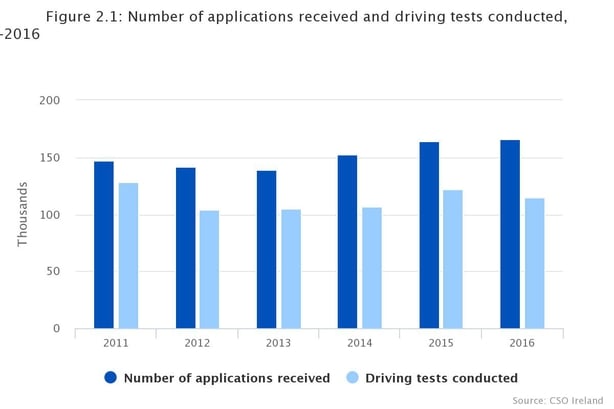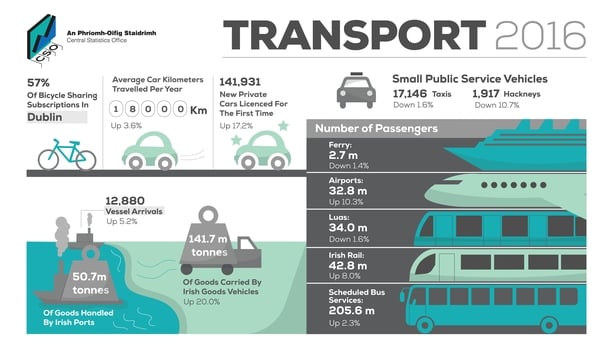Just under 200,000 penalty-point notices were issued in 2016, a fall of 20% on the previous year.
Latest data from the Central Statistics Office's 'Transport Omnibus 2016' also shows that seven out of every ten penalty point offences were for speeding, with women more likely to be caught speeding than men.
79% of endorsements for women were for speeding, compared with 69% for men.
However, men were more likely to receive penalty points for holding a mobile phone.

Overall, men received more penalty-point notices in 2016, with a 63% to 37% split.
According to the CSO, there were more than 2.6m vehicles driving on Irish roads last year, with over 48.5 billion kilometres travelled.
Each vehicle drove an average of 18,441 kilometres.
In 2016, 186 people were killed on Irish roads, representing an increase of 24 fatalities (14.8%) on the 2015 figure.
There were 114,399 driving tests conducted in 2016, with the average pass rate at just over half (53.7%).
Compared with 2015, the number of driving tests conducted in 2016 fell by 6.2%.

The number on the waiting list for a test at the end of the year was 17.7% lower, but the average waiting time for a test increased to 12 weeks.
Of the almost 1.5m cars that underwent the National Car Test last year, over half (52.8%) failed the initial test, while the pass rate for subsequent tests was 94.2%.
More than 282m passengers were carried on scheduled public transport last year; 205.6m on buses, 34m on the Luas, and 42.8m on rail services.
Across 2016, the largest number of journeys by users of the bicycle sharing scheme in Dublin was in September, when 409,077 journeys were made.

The CSO said 32.8m passengers passed through Irish airports last year - an increase of 10.3% on 2015.
Dublin Airport accounted for 84.6% of air passengers in Ireland, while the Dublin-Heathrow route carried the most air passengers (1,751,689).

